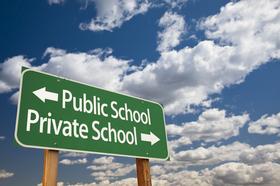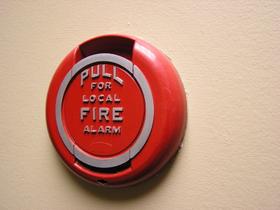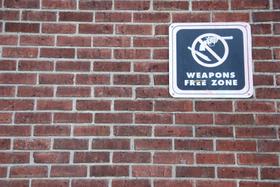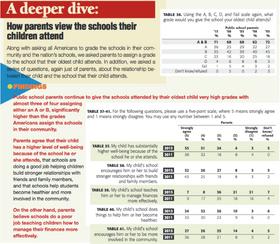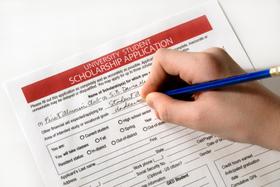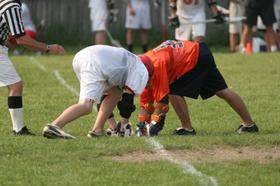Changing schools and moving can be stressful events, even if the entire family is excited about the move. The purpose of this article is to give you a checklist of all the things you may need to think about as you orchestrate your move and what you may need to do when changing schools. We have set up the list of things to do along with a timeline, to mirror your own busy schedule as you get your household and school paperwork in order.
As soon as you decide to move
- Changing Schools?
- Research the schools. The difference between a top rated school and a school that lags behind its peers could be as simple as living on one side of the school boundary. Also, if your child has special needs or unique goals (i.e. they had been in a foreign language immersion program), you will need to find out what is available where you are moving to.
- Start early. Even public schools may have waiting lists if they are charter or target schools.
- Found out if there are any extra-curricular activities that require early enrollment or may involve practice over the summer before the school year starts.
- Enroll your children in their new schools. Make sure you've filled out all the required paperwork and have all the necessary doctors' forms, immunization records, etc. so that the kids can start on Day One.
- Get a copy of your children's current coursework so that the new school can get a better idea of where to place the child in terms of classes or levels.
- Find day care services or extended day services as soon as possible. Most of these services will have waiting lists, enrollment applications, and down payments necessary to hold spots.
- Decide what you want to do with your house. Will you rent it out or sell it? If so, find a realtor.
- Find a moving company. Ask around for good recommendations. Get a few quotes for the move to help you decide who to pick.
- If you work for yourself or have a business and you're moving to a new state, learn the new state business and tax laws.
This video offers some tips for moving.
Two months before your move
- Keep immunization records, medical forms, and birth certificates separate from other papers that you plan to pack for the move. You'll need these papers to get the children enrolled in their new school. Keep them with your important personal papers rather than risk losing them or misplacing them in the move.
- Verify that your kids' immunization records are up to date. It might be easier to make appointments with their current doctors than to find new ones after the move.
- Get a change-of-address kit from the post office so that you can have mail forwarded to your new address.
- Make a list of all the contacts you need to inform of your move: banks, credit cards, insurance companies, any car payments, magazine subscriptions, memberships, IRS, etc.
- Schedule closings of your gym membership, any community clubs or country clubs which you have joined, etc. Before you close your membership, verify whether these organizations have branches where you are moving.
- Schedule stoppage of service for your local and long distance phone numbers, electricity, gas, oil, security service, newspaper service, etc.
- Schedule your move with the moving company.
- "Spring clean" your possessions before the move. Consider if something is important enough to take with you on the move. Otherwise, throw it out or give it away.
One month before your move
- Schedule a party or get together so that your children and you can say goodbye to your friends. Take plenty of pictures. Get mailing addresses, e-mail addresses, and phone numbers. Don't wait too long to have this party if you're going to have it at home because your moving plans will start to interfere. Alternatively, throw the party at a local restaurant or park.
- Get maps of the new place where you're moving to. Show the children the relationship between their new house and school. Highlight any other major landmarks to help the kids get a good feeling for their new place.
- If the move is in the middle of the year, you may have some extra steps to make sure the move is smooth.
- Get a school supply list from the new school so that you will have those supplies ready rather than having to scramble to get the kids ready for school after you arrive at your new destination Consider keeping the kids' school supplies with you as opposed to getting packed away by the moving company.
- Get the children's uniforms in order. You may want to wait until you get to the school to see what uniform pieces most kids wear before you spend a lot of money buying the uniforms.
- Get a copy of their school guidelines. Your children may be used to different regulations on makeup, acceptable clothes, locker use, PE, etc. By learning as much as you can about their new school, it will really help the children to feel comfortable in their new school. Look into whether the kids will need uniforms (many public schools require uniforms now, too).
- Inventory your major or expensive possessions with a video camera or photographs.
- Unless you have your money in a small local bank, you probably do not have to worry about changing banks. Still, this may be a consideration. Look into banks in your destination area.
- Contact your new utilities and schedule to have their services turned on (local phone, long distance phone, cable, electricity, oil, gas, etc.).
- Find new doctors in the new location.
- Make your travel arrangements, if necessary.
- Consider how you will transfer your pets. Will they travel with you or do they need separate travel arrangements? Are you taking them with you or will you need to leave them behind?.
- Give your plants away if you have any. Most plants usually cannot make the move.
Sumplify Your Space offers practical advice for moving.
Three weeks before your move
- Get a babysitter for moving day or arrange to have the older kids hang out with a good friend. You do not want to have the kids running around on moving day.
- Look into moving insurance; consider whether you need any.
- Arrange to have a cleaning crew come to clean the house after the move.
- Arrange to have the lawn maintained after you leave but before the house closes (if you sell the house) or until the renters move in.
Two weeks before your move
- Make sure all school books and library books have been returned.
- Pick up any dry-cleaning that may still be out.
- Get the locks changed on your new home. Have any necessary repairs made on your new home.
One week before your move
- Return cable equipment that was loaned from the cable company.
Moving week
- Organize your personal belongings so that the movers know what to pack and what to leave alone.
After you arrive at your new place
- Drive the kids to their new school before school starts.
- Consider introducing yourself to the neighbors, depending on your comfort level talking to strangers. You may want to go door to door or actually throw a backyard or house party inviting your closest neighbors over.
- Talk to the new school counselors to make sure they know that your kids are experiencing not just a new school but have actually experienced a major house move as well.
- Look into extracurricular activities (associated with and without the school) to give the kids opportunities to meet new friends.
- Work out a fire evacuation plan.
This video offers a 12 point checklist for moving day.
General moving tips
- Research school zones before you look at houses or rental apartments so that you are making an informed decision regarding where your family will live.
- The best time to move is at the beginning of summer. That gives the children more time to get used to their new home and area and hopefully meet new friends before the first day of school.
- Follow up with school counselors about a month after school starts to see how the children are adapting to their new schools.
- Get involved with the new school. Join the PTA; help support an extracurricular activity.
- Test all of your fire alarms before putting them up.
Online sites & services Here are some of our favorite online sites related to moving and moving services:
- Moving.com can help you find a mover, rental struck, storage facilities plus real estate help. By using an online interface, you can request moving quotes.
- Direct Your Move is another site that will help you get moving quotes online. Besides moving resources, it also offers storage and packing resources and supplies as well as moving tips.
- 123Movers.com focuses just on providing you with resources for moving. 123Movers can provide you with the top movers in almost 20 major cities across the United States.
- The US Postal Service offers an online mover's guide that will help you get your change of addresses all set up before you make your big move.
- RentCafé.com is a trusted resource for renters throughout the U.S., listing apartment for rent straight from property managers. This means that the user can browse verified listing only and not be wary of falling for online scams. Moreover, RentCafé is one of the few sites that allow renters to apply online and have their application immediately sent to the property manager.
Questions? Contact us on Facebook. @publicschoolreview






